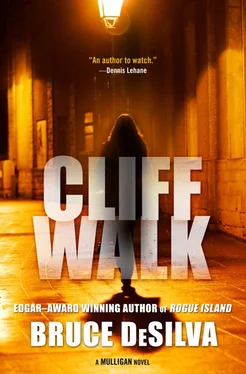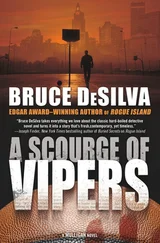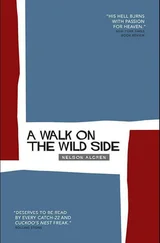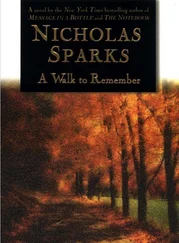“Right.”
“The captain figured you’d show. Said you should go up to the house and ring the bell.”
Halfway up the long gravel driveway, we veered away from the house and slogged across a muddy field toward the hog pens. There, three grim detectives wearing rubber boots and plastic gloves were pawing through an SUV-size mound of garbage. On the ground beside them, a sky-blue tarp had been spread on the ground. In the middle of the tarp, a small lump.
“Hey, Sully,” I shouted over the grunts and squeals from nine hundred tons of breakfast meat on the hoof. “Hope that isn’t what it looks like.”
“Mulligan? You’re not supposed to be here,” he shouted back. “The captain said to send you up to the house.”
“Okay.”
“And tell your photographer to stop taking pictures.”
Gloria dropped her camera, letting it dangle from its strap while I inquired about the well-being of Sergeant Sullivan’s wife and kids. That gave her time to shoot from the hip, sneaking in a few more frames. When she nodded that she was ready, we turned and walked toward the white-shingled two-story house. A few curled brown leaves clung to the red oak that shaded Cosmo’s porch in summer.
“ Your photographer?” Gloria said. “I hate that. Just once, I’d like to hear you addressed as my reporter.”
We stepped onto the wide farmer’s porch and wiped our muddy feet on the Three Little Pigs welcome mat. Gloria stretched out a finger to poke the bell.
“Hold on,” I said.
“What?”
“Let’s see if we can learn something first.”
Captain Parisi’s muffled voice leaked through the door, but I couldn’t make out his words over the symphony of the swine. They butchered the vocals to Aerosmith’s “Walk This Way” and segued into a raucous, off-key rendition of Led Zeppelin’s “Whole Lotta Love.” But whatever Parisi was saying pushed the pig farmer’s buttons.
“It’s Friday morning,” Cosmo bellowed. “Where the fuck do you think they are?”
Parisi said something else I couldn’t make out. Then Cosmo again:
“In school, asshole! They’re in fuckin’ school!”
I caught the sound of a woman’s voice then, and whatever she said seemed to calm Cosmo down. After a few more unproductive minutes of ear strain, I rang the doorbell. A uniformed state trooper with bowling-ball shoulders opened the door, a buff broad-brimmed Stetson clutched in his left hand.
“Sir?” he said.
“This is Gloria Costa, a photographer from the Dispatch, ” I said, “and I’m Mulligan, her reporter. Captain Parisi left word for us to come up to the house.”
“Wait here,” he said, and shut the door.
“Thank you,” Gloria said.
“You’re welcome.”
We were still waiting there ten minutes later when a satellite truck from Providence’s ABC affiliate raced down the road and screeched to a stop beside the cruiser blocking the drive.
“We’ve got company,” Gloria said.
The driver got out to talk with the trooper, and after a minute or so the conversation grew heated. The hogs were covering a Michael Bolton power ballad now, their version an improvement over the original, but I could see that the TV guy was yelling and waving his arms in frustration. Finally he got back in the van, backed it up, and parked behind Secretariat. The crew climbed out, opened the back doors, pulled out camera equipment, and started setting up behind by the barbed-wire fence.
“Parisi must like you,” Gloria said.
“I’m not sure he likes anybody.”
“Then how come he let us up here and not them?”
“Because he knows we’ll get the story right. No dressing it up with space aliens, conspiracy theories, and Angelina Jolie.”
“More company,” Gloria said. Satellite trucks from the NBC and CBS affiliates were coming down the road.
Somewhere nearby, two powerful engines growled to life, giving the hog chorus a bass line. A moment later, a matching pair of Peterbilt garbage trucks with “Scalici Recycling” in red letters on their cab doors lumbered into view from behind the farmhouse. I assumed they were hitting the road for more pig food. Instead, they took a sharp right through the muddy field and rolled to a stop in front of the crime scene, blocking the view of it from the road.
At the end of the driveway, the cruiser moved aside so the medical examiner’s van could rumble through. It rocked its way up the gravel drive, pulled into the field, and stopped ten yards from the garbage pile where the state troopers were still sifting. The door swung open, and Anthony Tedesco, the state’s tubby chief medical examiner, rolled out lugging a large, stainless-steel case. Normally, his assistants did the crime scene work. It took a big case for him to venture out from the sanctity of his morgue.
Gloria snapped a few pictures with her long lens as Tedesco waddled to the blue tarp and knelt beside it. When he peeled it back, she put down the camera, turned her head, and said, “Jesus!”
“Maybe you shouldn’t be on this one, Gloria.”
“And maybe you should shut up and let me do my job.”
I was fishing for a suitable response when the farmhouse door swung open behind me.
“The captain says you can come in now.”
The trooper held the door for us, and we walked through it, following the sound of voices down a short hallway floored with polished bamboo. On both sides, the walls were hung with formal studio photographs of the Scalicis’ pork-fed daughters, Caprina and Fiora. We found Cosmo and Parisi in the kitchen, seated on opposite sides of a retro dinette table with chrome legs and a red cracked-ice Formica top. Both men had empty coffee mugs in front of them. Between them, a heaping platter of biscotti and cannoli.
Cosmo’s wife Simona, slim at the waist and ample where it counted, stood at the granite countertop and measured grounds for a fresh pot. She threw us a look over her right shoulder.
“Make yourselves at home. The coffee will be ready in a few minutes.”
As Gloria and I seated ourselves at the table, I spied six color snapshots on the sculpted steel door of the Sub-Zero refrigerator, all held in place by Miss Piggy refrigerator magnets. Cosmo saw where my eyes had gone.
“Her name was Gotti,” he said. “First sow I ever owned.” Across the room, Simona sniffed resentfully.
“What happened to her?”
“After her breeding days were over, we ate her.”
“Any Gotti left to share with your guests?”
“It was twelve years ago.”
“No leftover chitlins in the freezer, then?”
“We don’t eat the viscera. We feed it to the pigs.”
“Then I’ll settle for this,” I said. I snagged a cannoli from the stack and took a bite. “Fantastic. Did you make these, Mama Scalici?”
“Can’t say I did. They’re from DeFusco’s Bakery in Johnston.”
“Really?” Parisi said. “ That’s what you want to ask about?”
“Yeah,” I said. “But I do have a couple of other questions.”
“Shoot.”
“Caprina and Fiora safe at school, are they?”
Cosmo slammed his fist on the table so hard, the pastry platter jumped. “You too, Mulligan?” he growled, his face a tomato. “I can’t fuckin’ believe it.”
“Now, Cosmo,” Simona said. “These gentlemen are just doing their jobs. And such language in my house!”
Cosmo was always quick to take offense at any insult, real or imagined. He’d spent his entire adult life trying to prove that pig farmers and garbagemen were as good as anybody else. But no matter how hard he tried or how much money he made, his kids got picked on at school, he and his wife never got invited to the right parties, and he kept getting blackballed at the Metacomet Country Club.
Читать дальше












